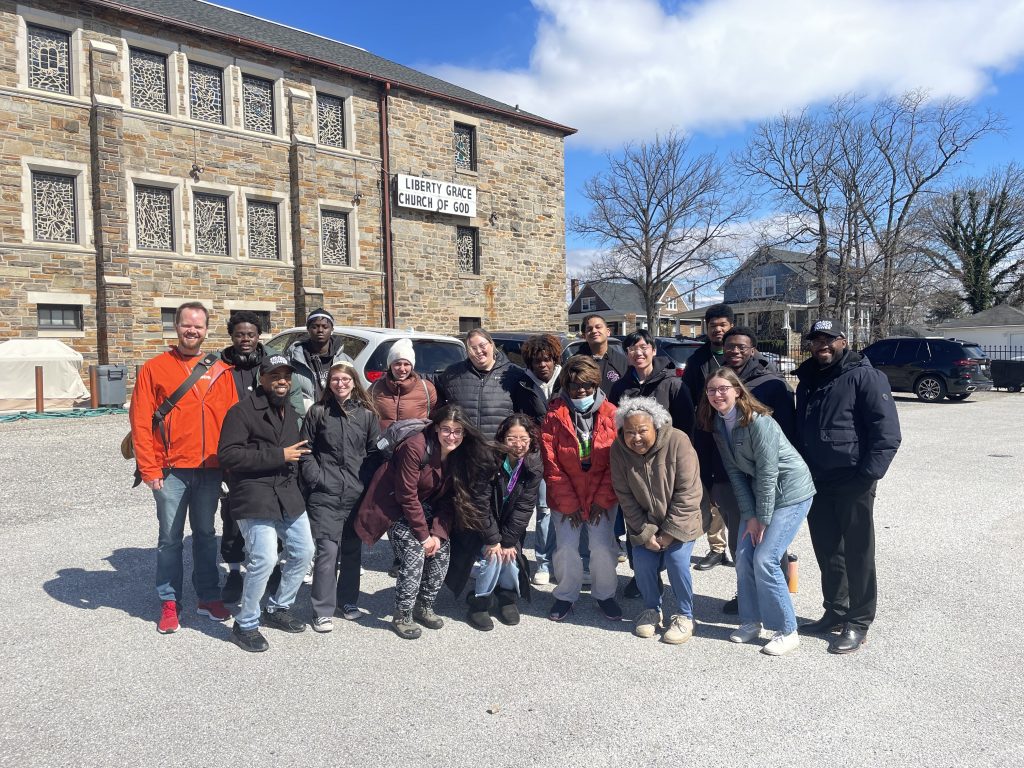By Gloria Sporea ’24
During our first day in Baltimore, we had the incredible honor of being introduced to the Black Food Security Network, along with the network staff, and founder, Dr. Rev. Heber Brown III. We were welcomed with open arms, warmness, and community; although we were stepping on grounds we had never been to before, we all left with an impacted heart and soul, and most importantly, an understanding that the vital work that is done by such organizations should be uplifted for the greater good of all. More specifically, we generated a broader comprehension that reliance for positive change should not be placed on the same structures that created such discrimination, rather, it begins with the individual and their community.

Dr. Brown informed our perspectives on food insecurity, specifically within the United States, with a background on African-American history in respect to resource and land acquisition. I personally never pondered the history of agriculture within black populations, something that in the US is thought to have started during slavery eras. However, there is a rich connection that has been shared with food production, land, and nature within African communities for millennia. There is community, glory, and culture in such interactions that systematically have been ripped away in the attempts to leave populations reliant and powerless. The Black Church Food Security Network recognizes that black farmers are critical in ensuring food sovereignty and security for their communities, and their knowledge and expertise in sustainable farming practices are essential for building resilient and sustainable food ecosystems. It is crucial to recognize and support Black farmers and community gardens to ensure that they can continue to provide for their communities and help build a more just and equitable food ecosystem for all.
Power not pity, a motif throughout the experience with the Black Food Security Network, has truly stuck with me. To find solutions to issues such as food insecurity means to understand that there is an injustice happening in the first place. By using the idea of power and not pity, we do not remove ourselves from the injuries of an unjust system and rather see aid given to any community as progression for all. I also think this way of thinking gives back deserved dignity to all affected by such injustices. Ending our time together, Dr. Brown left us with an impactful message: “critique what is, create what should be.” This statement is one I know will stay with me for my future and the futures of my peers.